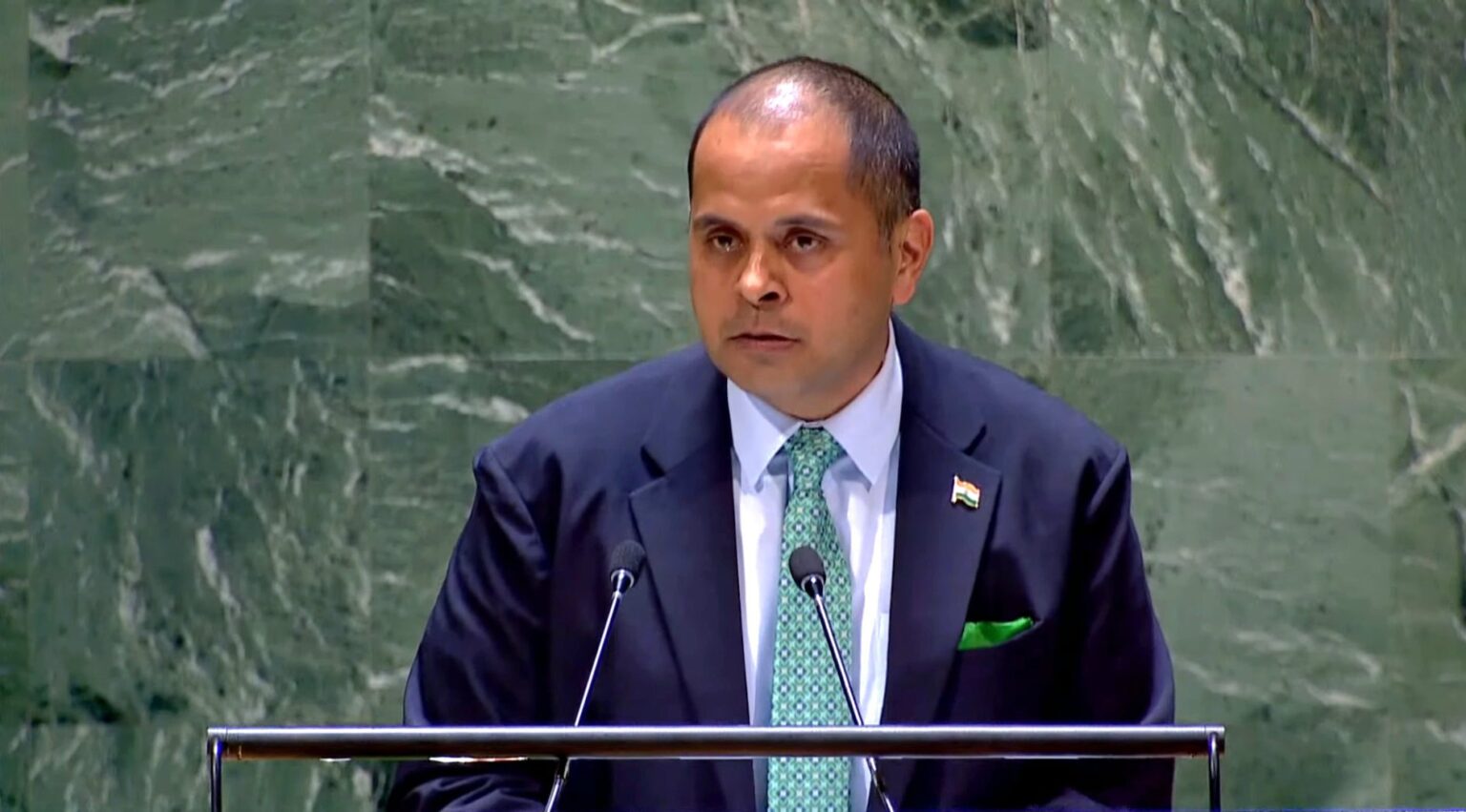Table of Contents
India has criticised Pakistan for its baseless and misleading narratives, in response to comments made by Pakistan’s UN envoy Munir Akram about Kashmir during the UN General Assembly session. Minister Pratik Mathur from India’s Permanent Mission to the UN emphasised the rejection of such attempts to raise the Kashmir issue at international platforms. Pratik Mathur stated at the UNGA debate on the annual report that a particular delegation had misused this forum to propagate deceitful and baseless narratives.
‘the earlier part of the day, a delegation misused this platform inappropriately to disseminate baseless and deceptive stories, which is not a surprise. I will not dignify these remarks with any response just to save valuable time of this august body’ Marthur said. Mathur responded to the statement made by Pakistan’s Ambassador to the UN during the General Assembly debate by emphasizing the need to monitor the implementation of UN resolutions, particularly those concerning Palestine and Jammu and Kashmir.
Pakistan frequently brings up the Jammu and Kashmir dispute at international forums and the United Nations, irrespective of the meeting’s purpose. India has consistently rejected Pakistan’s endeavours to raise the Kashmir issue on global platforms, affirming that the union territories of Jammu and Kashmir and Ladakh are an “integral part of India”, and Pakistan has no legal authority to comment on India’s internal matters.
Marthur advocates reform of the Security Council
During the UNGA debate, Pratik Mathur emphasized the crucial need for a thorough overhaul of the Security Council, advocating for the enlargement of both permanent and non-permanent members.. He expressed appreciation for being able to engage in the debate on the Security Council’s Report and thanked the Council members and Secretariat for their efforts in producing the annual report. Indian diplomat stated that the annual report of the Security Council serves the purpose of informing, highlighting, and analyzing the measures undertaken to uphold international peace and security within the reporting period.
Image credit: X
Jammu and Kashmir is integral part of India
When India officially became a Republic on January 26, 1950, Article 370 of the Indian Constitution bestowed a special status upon the State of Jammu and Kashmir. In accordance with this, the Regent, who held the position of Head of the State, issued a Proclamation on May 1, 1951, mandating the formation of a Constituent Assembly consisting of elected members.. Yuvraj Karan Singh was elected as Sadar-i-Riyasat on August 19, 1952, following the Delhi Agreement.
In May 1954, the President of India extended the Constitution to the State through the Constitution Order 1954-CO 48 under Article 370. On November 17, 1956, the Constitution of Jammu and Kashmir was adopted by the State Constituent Assembly, officially declaring the State as an integral part of the Union of India. The Constitution came into effect on January 26, 1957, with the immediate enforcement of Sections 3 & 4. Following the 6th amendment on March 28, 1965, the Sadar-i-Riyasat was re-designated as the Governor and the Prime Minister as the Chief Minister. The Jammu and Kashmir Reorganisation Act 2019, passed on August 9, 2019, resulted in the state being reorganised into two Union Territories – Jammu and Kashmir, and Ladakh.
